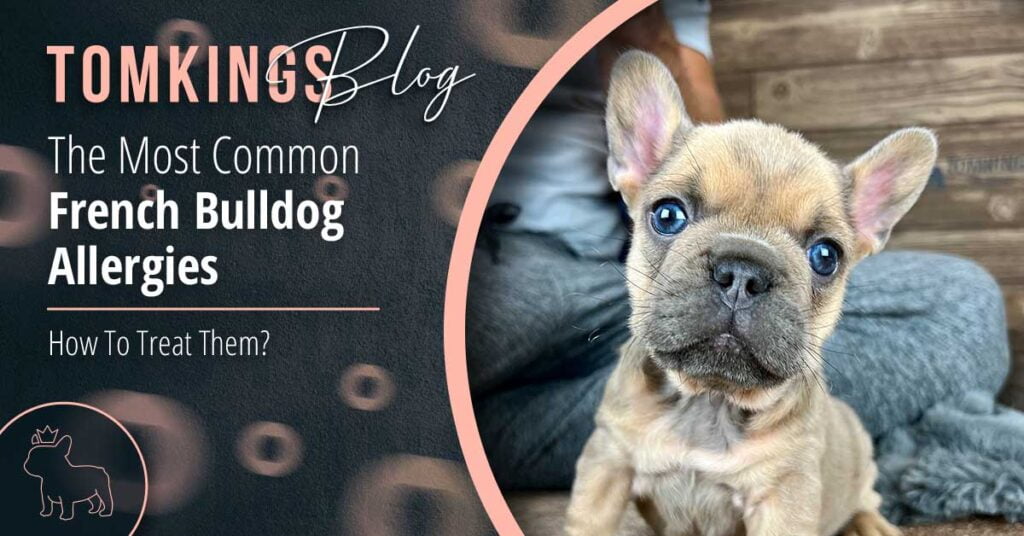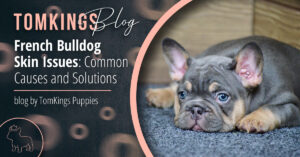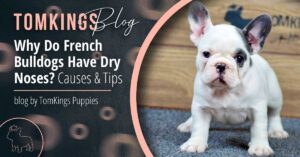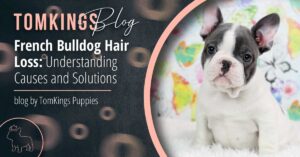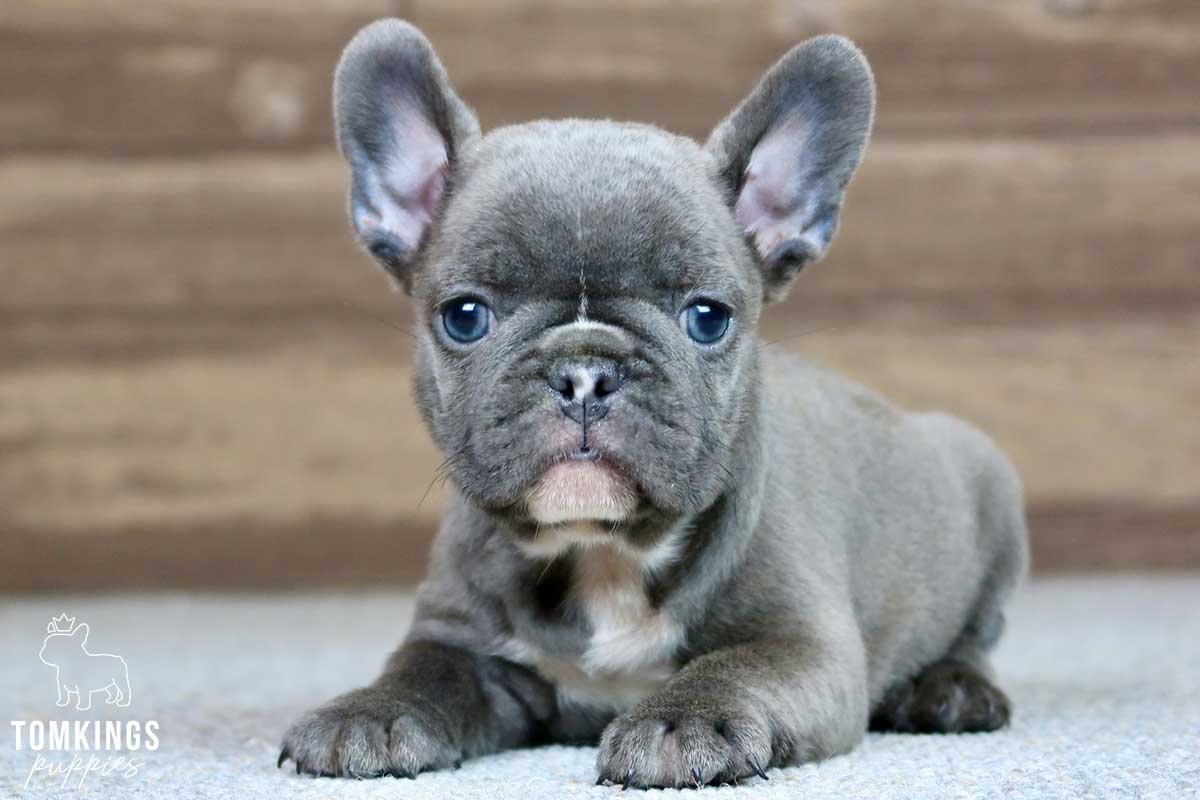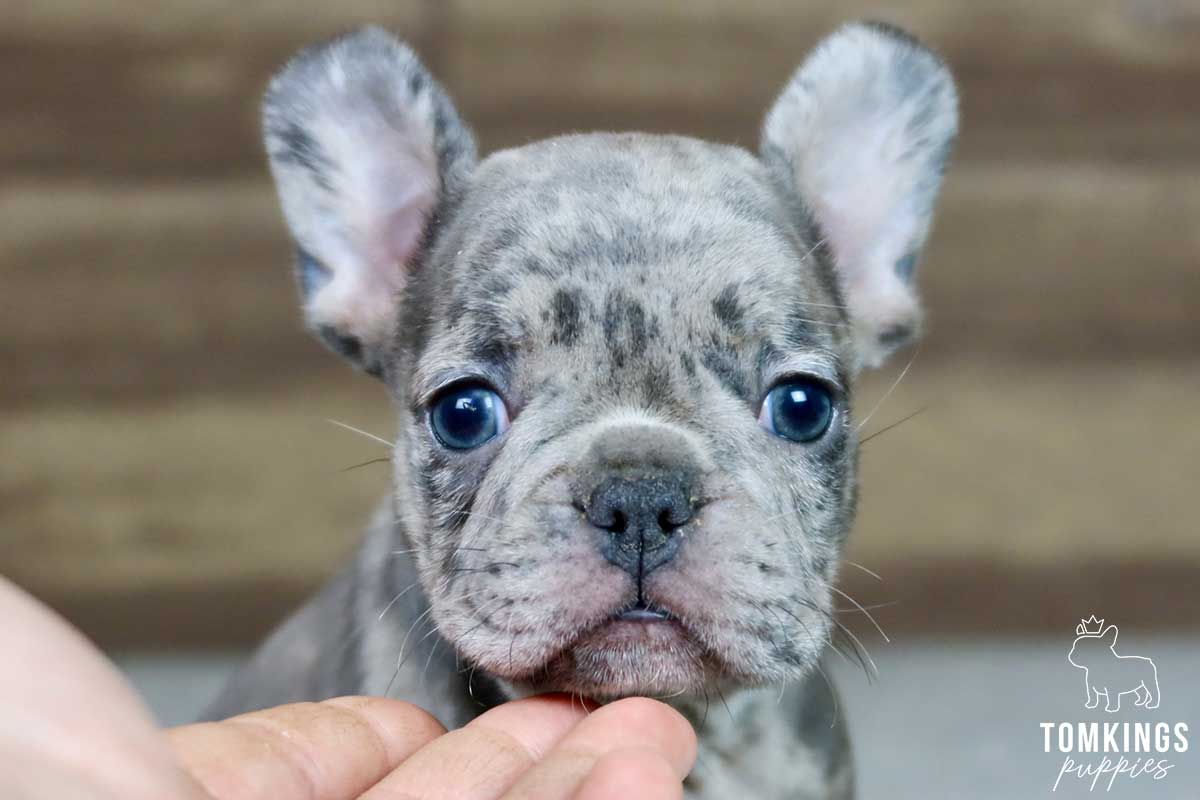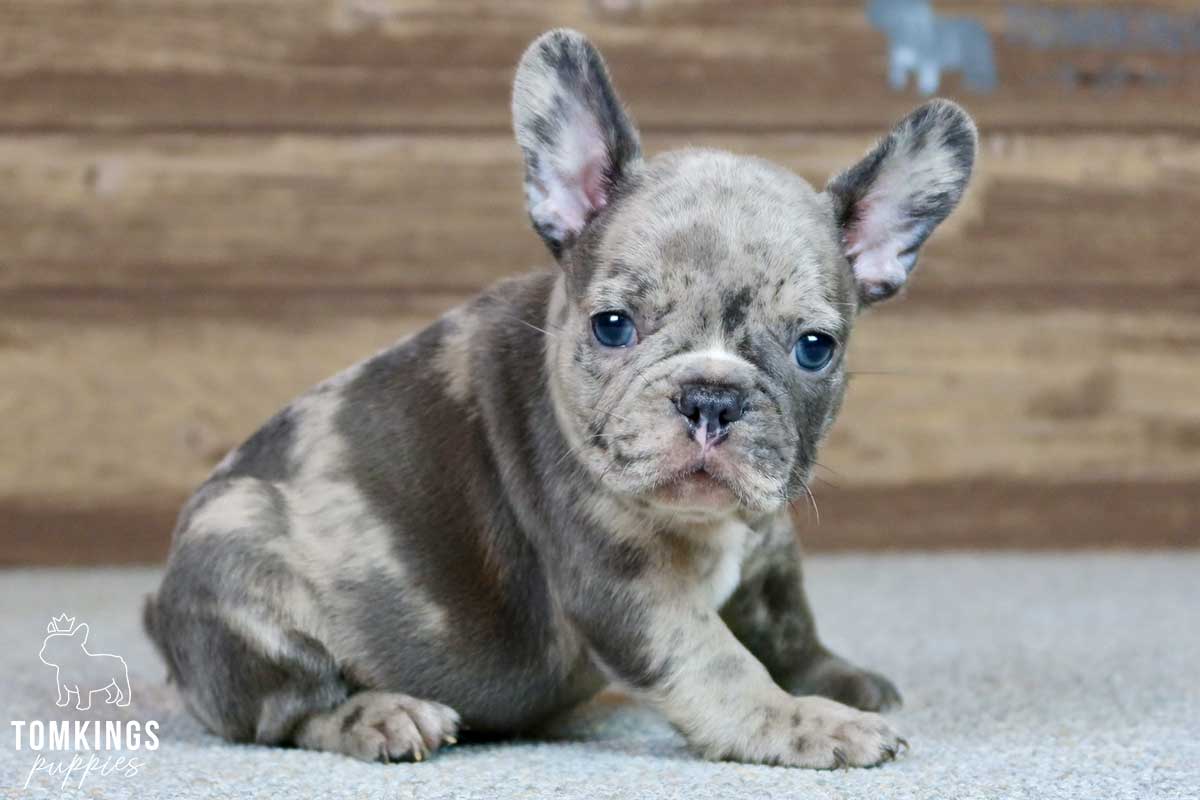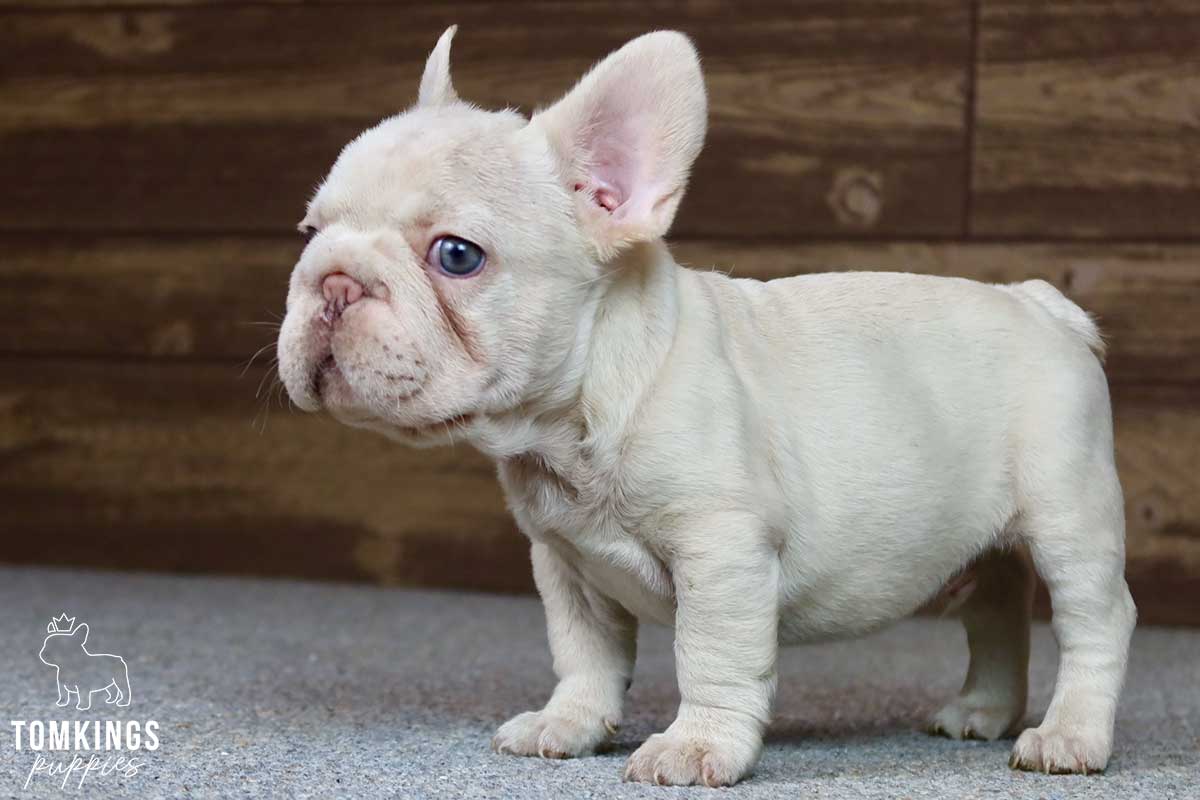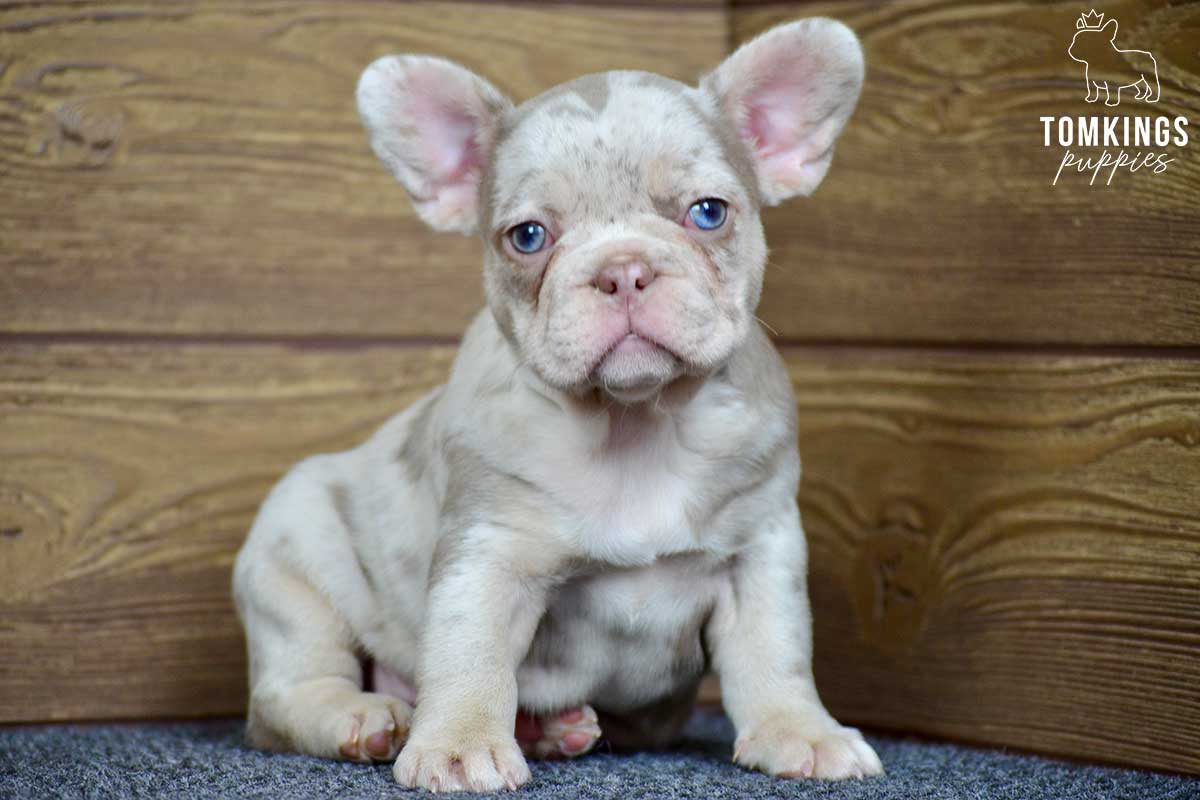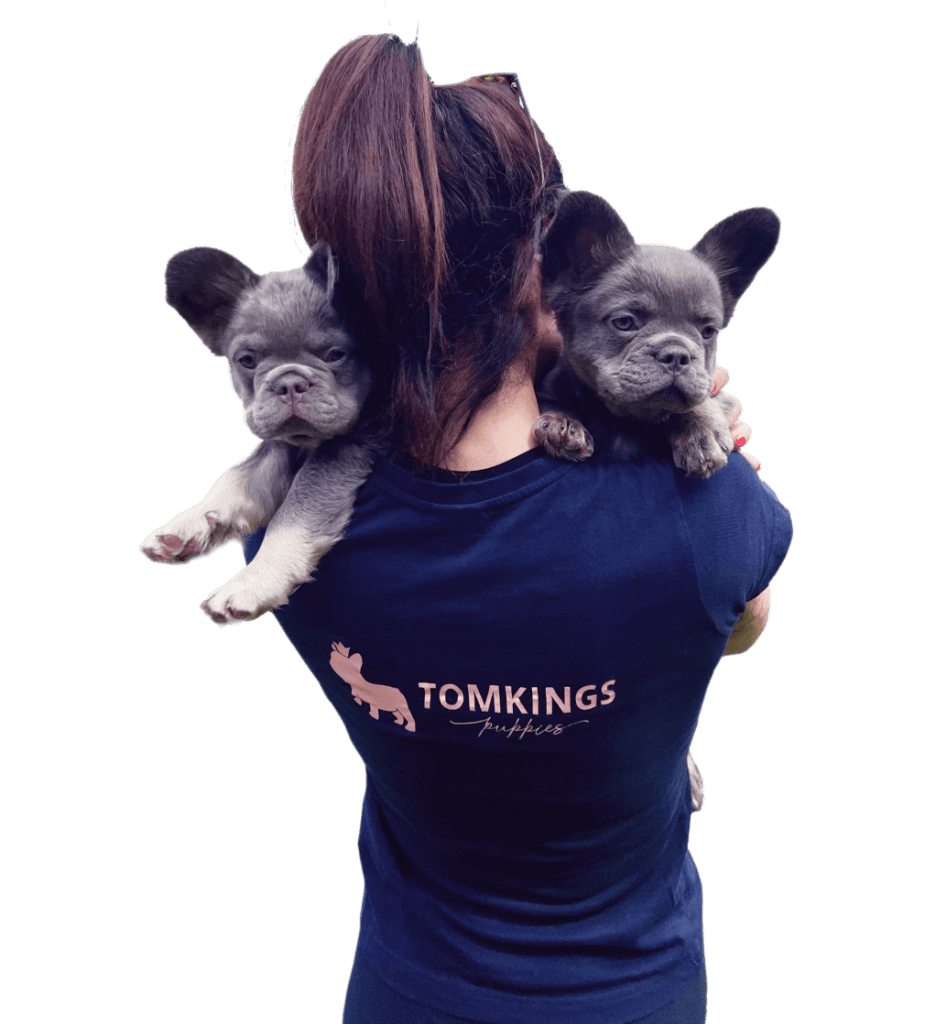Seeing their puppy scratching, chewing their paws, or having dietary issues would make any caring parent worry about their baby’s health. Frenchies are considered a sensitive dog breed when it comes to certain allergens in their food or environment, but luckily there are ways to keep allergy symptoms under control. In this article, we’ll explore the most common French Bulldog allergies that may trouble your puppy, and provide valuable insights on how to recognize and treat them effectively.
Table of Contents
ToggleRecognizing Allergy Symptoms
With so many artificial ingredients, air pollution, detergents and basically everything around us, we live in an increasingly poisonous world, where both humans and our furry friends are more likely to get allergic. French Bulldogs, like any dog breed, can be prone to allergies that may affect their health and well-being. There are several types of French Bulldog allergies, but before we dive into these in detail, let’s see what some of the general symptoms are that may signal an allergic reaction.


Itching and Scratching: Excessive itching and scratching are probably the most telling signs of an allergy. Your Frenchie may focus on specific body parts, such as their paws, ears or face.
Digestive Issues: Allergies can lead to upset stomach, diarrhea, and vomiting. So, paying attention to your dog’s bowel movements and eating habits should be an essential part of your Frenchie’s care.
Sneezing, Runny Eyes: Some allergies can also cause sneezing, runny nose and watery eyes, which should not be confused with a common cold.
Hair Loss: Allergies can lead to skin and fur issues like hair loss. If you notice bald patches or irritated skin, allergies may be the cause.
Hives: Hives can appear as raised, red, and itchy welts on your Frenchie’s skin. If you notice hives, it’s essential to consult your veterinarian for a proper diagnosis and treatment.


Ultimate Guide
to Raising a Frenchie
Types of French Bulldog Allergies
As a Frenchie parent, identifying an allergy early on and knowing how to manage it is crucial for providing the best care for your furry friend. Let’s see what the most common types of French Bulldog allergies are.
Food Allergies
If you’re a Frenchie parent, you already know that this breed’s diet is one of the most important aspects of their care. French Bulldogs are generally known for having a sensitive stomach, so they not only require high-quality premium dog food to stay healthy and fit, but they also have a tendency to develop food allergies.
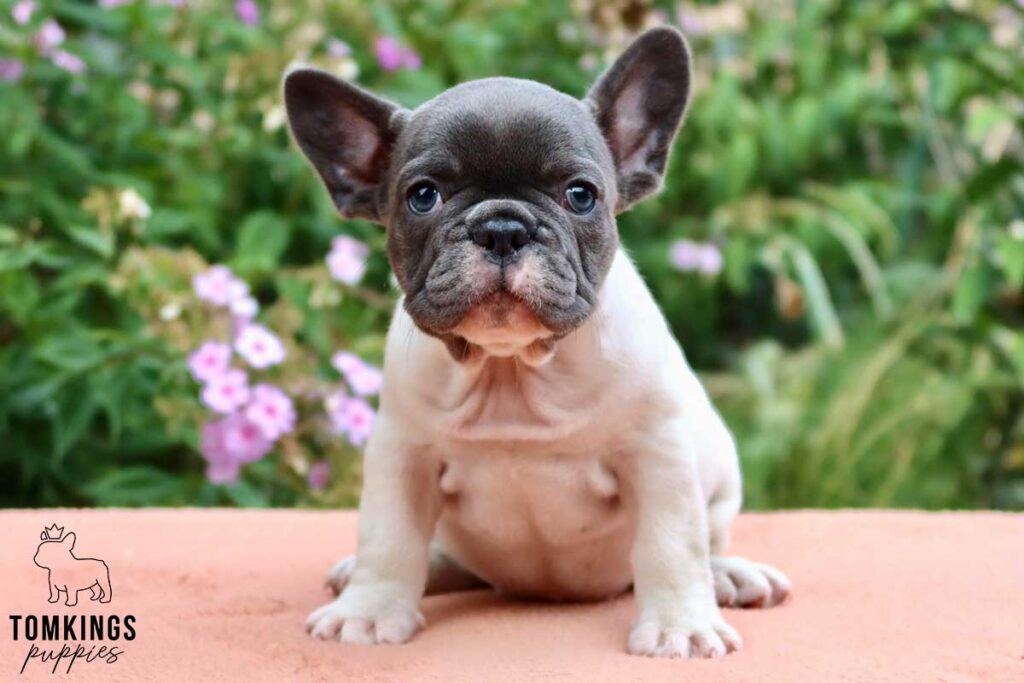

The primary causes of a food allergy in Frenchies are grains like wheat, corn, sorghum, dairy products, as well as certain proteins, with chicken being a frequent trigger. While these are the most common ones, it’s worth noting that not all French Bulldogs are equally sensitive, and may also have allergic reactions to some other types of proteins. So, it’s crucial to understand the ingredients in your Frenchie’s diet and to pay close attention to any signs of a possible food allergy.
The most common symptoms of a food allergy include scratching, hair loss, lifeless dull fur, inflamed eyes and ears often with some discharge, paw licking, swelling, but also lack of appetite, vomiting, and loose stools. You may not notice all of these at once and the degree to which they occur may also vary. However, any of these symptoms indicate that an immediate change of diet may be necessary.


Subscribe to our weekly blog newsletter
Environmental Allergies
French Bulldogs, like humans, can be sensitive to environmental allergens such as pollen, dust mites and mold, resulting in an environmental allergy. Sneezing, itching, watery eyes and a runny nose are the most common signs that your Frenchie may be struggling with these allergies.
Environmental allergies can be confusing for pet owners as the symptoms may resemble a common cold. So, it’s important to know what differences to look for. If your Frenchie has a cold, you will notice a greenish, thick nasal discharge, coupled with symptoms like a loss of appetite, lethargy, eye infections, or ear infections.
However, environmental allergies typically lead to itching: your Frenchie might scratch or lick their paws, eyes, or ears. Their eyes may become watery, and they could experience redness or irritation. While nasal discharge is less common with environmental allergies, if it occurs, it tends to be thinner and completely transparent.
Detergent Allergy
Something as seemingly harmless as your laundry detergent can trigger allergic reactions in your Frenchie. This allergy is typically triggered by ingredients in cleaning detergents or shampoos, sometimes even in products that didn’t cause problems before. Symptoms may include scratching, skin irritation, or in some cases loss of appetite.


To prevent detergent allergies, it’s wise to opt for hypoallergenic cleaning products, which are formulated to be gentle on your Frenchie’s sensitive skin. Always rinse your puppy thoroughly after bathing to remove any residual shampoo or detergent.
How to Treat Allergies Affecting French Bulldogs?
Dealing with allergies in your Frenchie can be challenging, but there are various treatment options available. Here are some of the best ways to address and manage the French Bulldog allergies we’ve just discussed.
Treating Food Allergies in Frenchies
As we have mentioned, many Frenchies tend to have allergic reactions to chicken and/or grains, so we usually recommend giving foods that are free from these right from the start. This tendency of course doesn’t mean that a chicken-based food will certainly cause issues for your Frenchie, but if you notice any allergic symptoms, the first thing you should think of is the chicken: eliminating it usually solves the problem right away (the same applies to grains).
Food intolerance testing can be a handy way to reveal a dog’s inability to properly digest specific nutrients, leading to food allergies. It’s important to note that many of these dietary sensitivities revealed through testing might not necessarily lead to real health problems for your Frenchie. However, you should definitely aim to avoid feeding those to which your pet shows strong sensitivity.
If your Frenchie is having symptoms of a food allergy, switching their diet to a super premium hypoallergenic grain-free dry food should be the next step. Hypoallergenic food made with insect protein is also a great option for pets with food allergies. It’s important not to give your Frenchie any other food nor treats in addition.
Check out the article: Best Food For French Bulldog With Sensitive Stomach – 8 Great Options at Frenchiejourney.com to find the best hypoallergenic Frenchie food on the market.
You can also try preparing homemade dog food recipes to control what gets into your Frenchie’s bowl. Helen, one of our dear TomKings Frenchie Parents did exactly that with great success, here’s what she posted in our Facebook group.
“I have been very frustrated by Lola’s skin issues. I did a home food intolerance test (5 Strands off Amazon). There were so many things I was feeding her that were probably causing her skin issues. A vet visit and an elimination diet. I have been cooking her customized food and the she is back to her coat, the lesions are gone, the biting her paws has stopped, no more flaky skin. Her BM’s have less volume and she loves the food. I cook it batched, 1x a week. It is less pricey than any of the fresh services like Farmer’s dog. She is getting quality ingredients and no overcooked kibble. Not for everybody but working for this girl. We are 4 weeks into the elimination diet.”


Three tips from Sandra, TomKings Puppies
#1 If you notice any problem with your Frenchie’s skin or fur and they haven’t received Bravecto or another anti-parasite treatment lately, administering that should always be the first step.
#2 If your puppy continues to have allergic symptoms after eliminating chicken and grains from their diet, switch to a premium hypoallergenic dry food and don’t give your Frenchie any other home-made food or treat.
#3 Do an immune strengthening course with your Frenchie for 3 months, using a liquid or soft chew immune booster supplement.
Treating Environmental Allergies in Frenchies
Environmental allergies cannot be cured unfortunately, but they can be managed very well with medication. So, if you’re suspecting that your Frenchie is suffering from environmental allergies, pay a visit to your vet to have the right medicines prescribed for your baby. Members of our TomKings Frenchie Family recommend Cytopoint, which is indeed an approved medication that brings relief for 4-8 weeks. Here’s what another TomKings parent, Madisen posted in the group:
“Wanted to share a life changer for allergies- Cytopoint injections! Hugo has struggled with seasonal allergies for almost 3 years and we’ve exhausted all oral tablets and shampoos (we didn’t want to move to steroids). Cytopoint was recommended by our vet every 4 weeks and took every itch and inflammation away immediately. It is a protein that neutralizes the itch signal – with no harmful ingredients or side effects! Wanted to pass along and hope it can help some other doggos!”
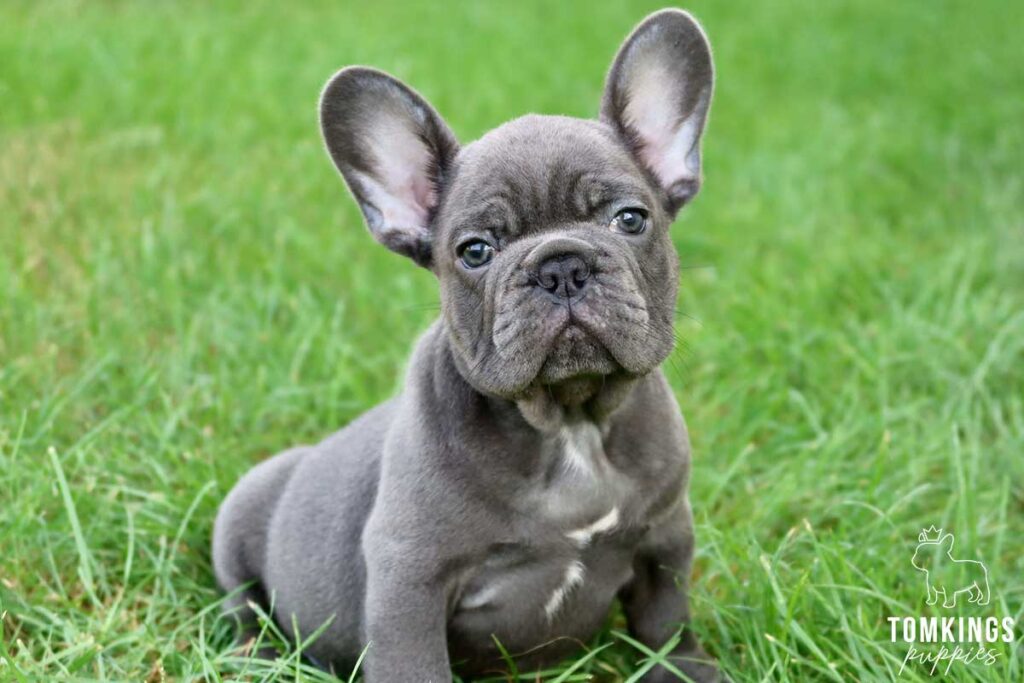

Choosing a Healthy Frenchie Puppy is Key
If you’re yet to welcome a Frenchie into your life, remember that your puppy’s well-being begins with selecting a reputable French Bulldog breeder. They not only breed parents from a trusted bloodline, but also give the best-quality food and vitamins to the puppy parents and the newborn puppies to avoid potential allergies later on.
If you’d like to learn more about Frenchies, join our Facebook group called TomKings Frenchie Family to read our Frenchie parents’ experiences.
The article is based on the expert knowledge of the TomKings Puppies team who have been breeding French Bulldogs for 10 years on their farm. All the pictures in the post belong to them and their customers, and show puppies from their breed. Check their available French Bulldog puppies, or if you have any questions or comments let us know below the article.
Related Blogposts:
- French Bulldog Skin Issues: Common Causes and Solutions
- 9 Ways You Might Be Shortening Your Frenchie’s Life
- Why Do French Bulldogs Have Dry Noses? Causes & Tips
- French Bulldog Ears Down: Is It Normal?
- The Truth About Chicken Allergies in French Bulldogs
- French Bulldog Hair Loss: Understanding Causes and Solutions

